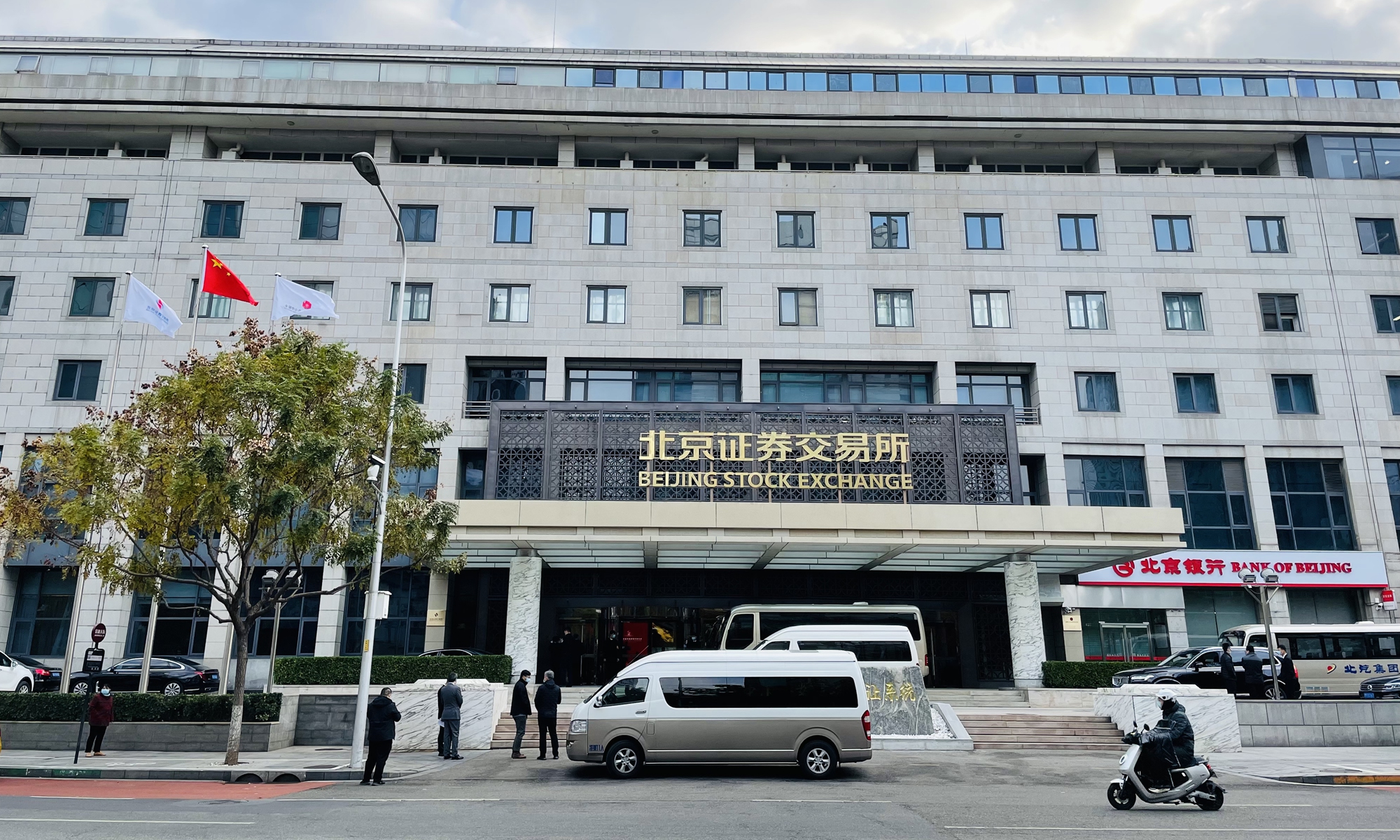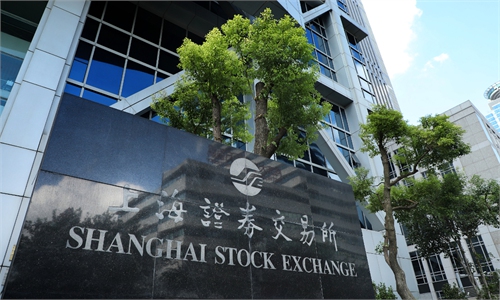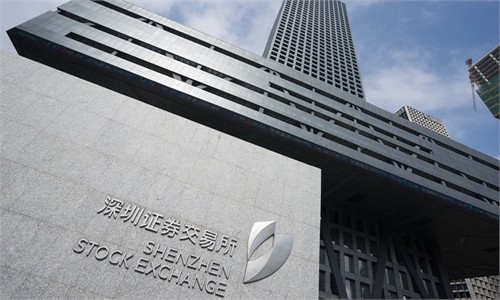China’s capital market reform sees high-quality leap one month after adopting registration-based IPO system
Market-oriented measures to drive innovations, contribute to economic upgrade: analyst

Beijing Stock Exchange Photo:Chi Jingyi/GT
The full roll-out of China's registration-based IPO system across the board marked its first month on Wednesday. The initial 10 listings have posted sound performance, gaining an average of 39.08 percent with transactions at a relatively high level, marking the smooth implementation of a landmark reform.The market-oriented reform, along with more foundational institutional reforms, will improve the inclusiveness and opening-up of the A-share market, give full play to the power of the capital market in driving innovation, better serve the real economy, and contribute to China's economic transformation and upgrade, analysts said.
On April 10, the first 10 companies, including smart equipment maker Zhongzhong Science & Technology (Tianjin) Co, electricity operator Shaanxi Energy Investment Co and Dencare (Chongqing) Oral Care, started trading.
On average, these listings had gained 39.08 percent as of Tuesday, with Shenzhen CECport Technologies, an electronic component service provider, surging by 127.69 percent.
Their average transaction volume per day was 636 million yuan ($91.78 million), far outpacing other A-shares over the same period, statistics from domestic financial data provider iFinD showed.
"Overall, the first batch of companies is mainly leading enterprises in their own sectors, and they have scientific and technological advantages. The improvement in the quality of listed firms under the registration-based system raises investors' confidence, which is underscored by their stock performance," Dong Dengxin, director of the Finance and Securities Institute of the Wuhan University of Science and Technology, told the Global Times on Wednesday.
The registration-based IPO reform adheres to market principles and improves the pricing mechanism, making it easier for companies to go public. As of Tuesday, more than 250 companies were waiting to be listed on the main boards in Shanghai and Shenzhen under this system, public data showed.
"We have felt the high efficiency of IPO sponsorship under the new registration-based system, as the listing review process is effectively reduced on the basis of high-standard information disclosure," a Beijing-based investment bank sponsor representative surnamed Huang told the Global Times on Wednesday.
Huang said that listing rules are open and transparent under the new system, exchanges' inquiries are more streamlined and focused, and the responsibilities of issuers and intermediaries have been simultaneously strengthened.
"The essence is giving the market and investors a choice under tightened market and legal constraints, and giving higher valuations to quality companies," he said.
China announced the across-the-board registration-based IPO system in February this year. The country conducted a trial of the system on the science and technology innovation board in 2019, and expanded it to the ChiNext board in 2020 and to shares on the Beijing Stock Exchange in 2021.
In addition to registration-based reform, China has stepped up efforts to improve foundational institutions to accelerate the construction of a modern capital market with Chinese characteristics. For example, the authorities are improving delisting rules to smooth delisting channels and accelerating reforms to introduce more medium- and long-term capital.
"While streamlining administration, the registration-based reform is conducive to strengthening regulation after companies are listed. It's an important step for steering the A-share market toward being more market-oriented, law-based and internationalized," Dong said.
After the implementation of registration-based system, the delisting of poorly performing companies is more efficient, he said, noting that about 50-100 A-share companies should be delisted each year.
"This will make the Chinese stock market more vibrant, with higher quality and investment value. It's also an important step in promoting the two-way opening-up of the capital market and increasing its attractiveness to international capital and overseas institutions," Dong said.



